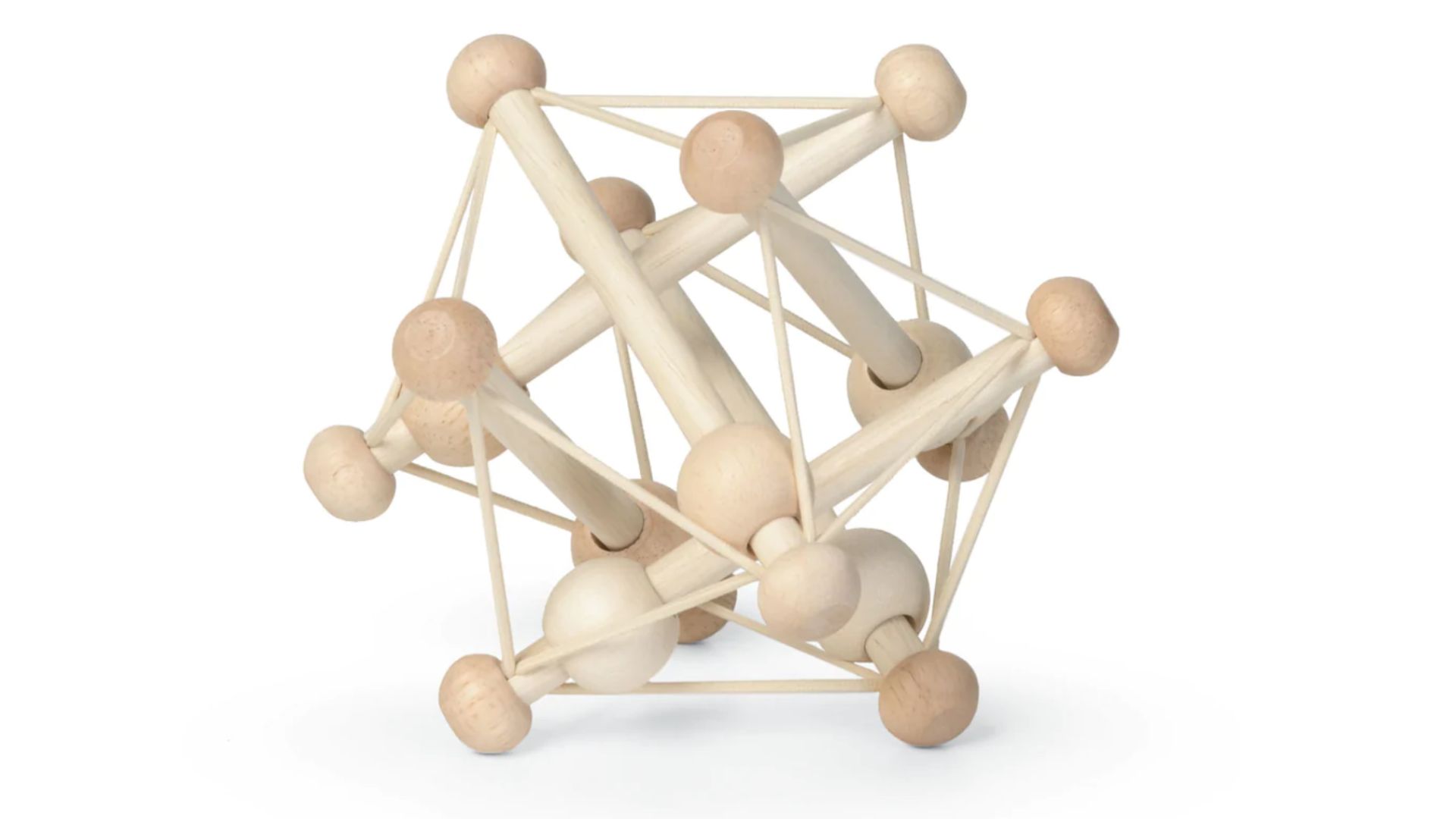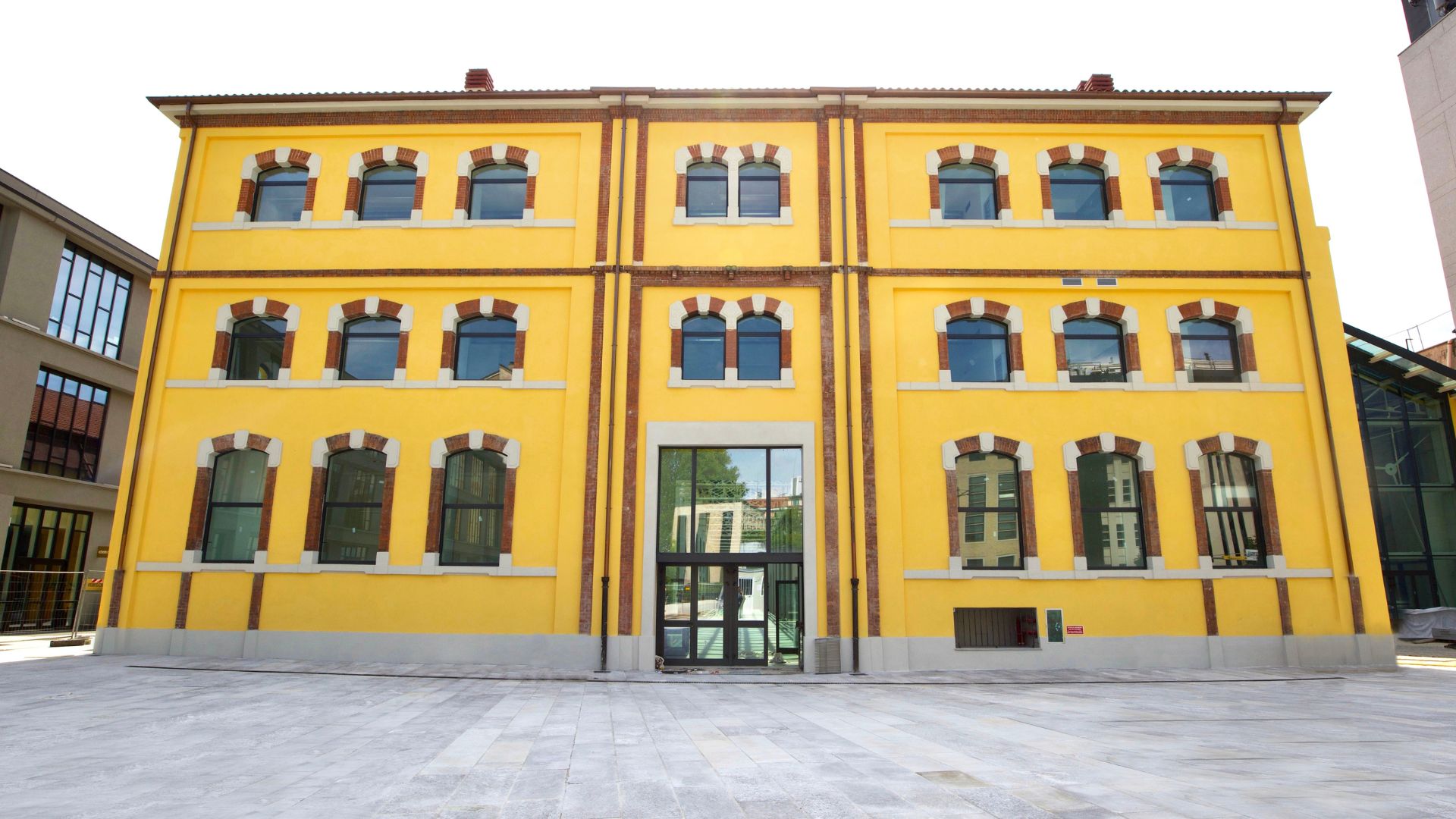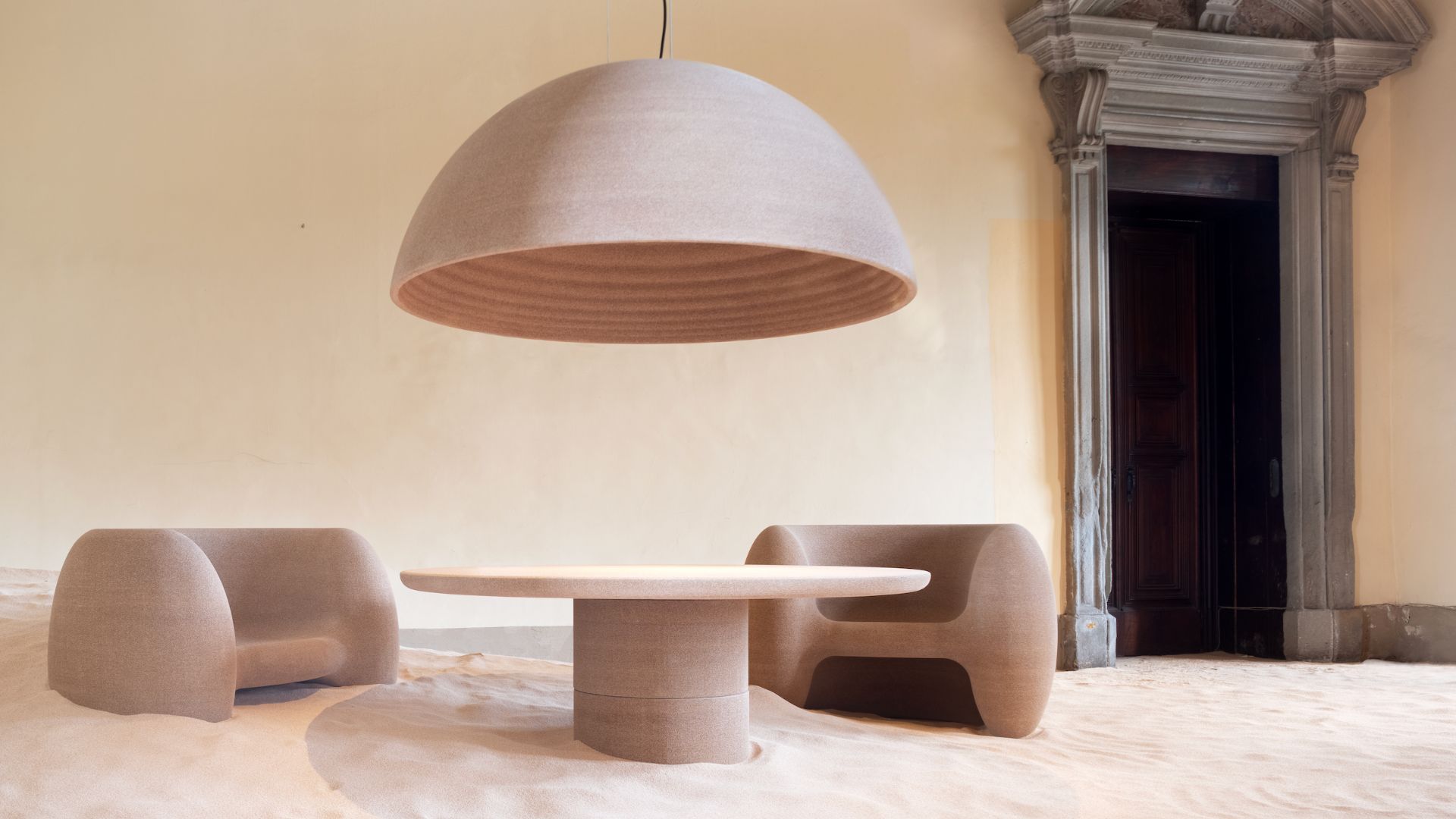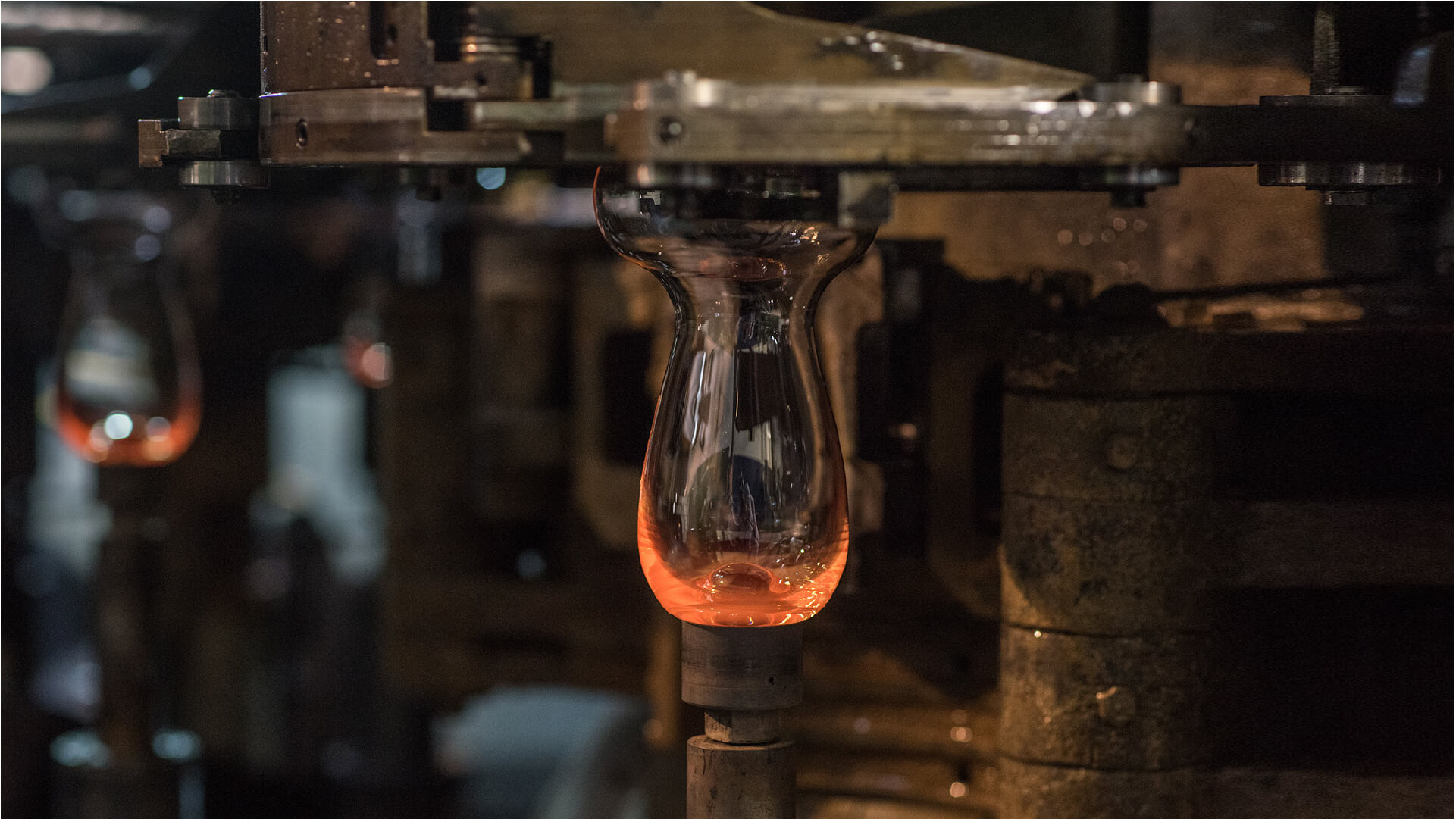10 beautiful product designs inspired by the ugliness of pollution
Rugs with images of the world’s dirtiest rivers, stools made of used face masks, and surfboards that utilize plastic waste: 10 products inspired by pollution.
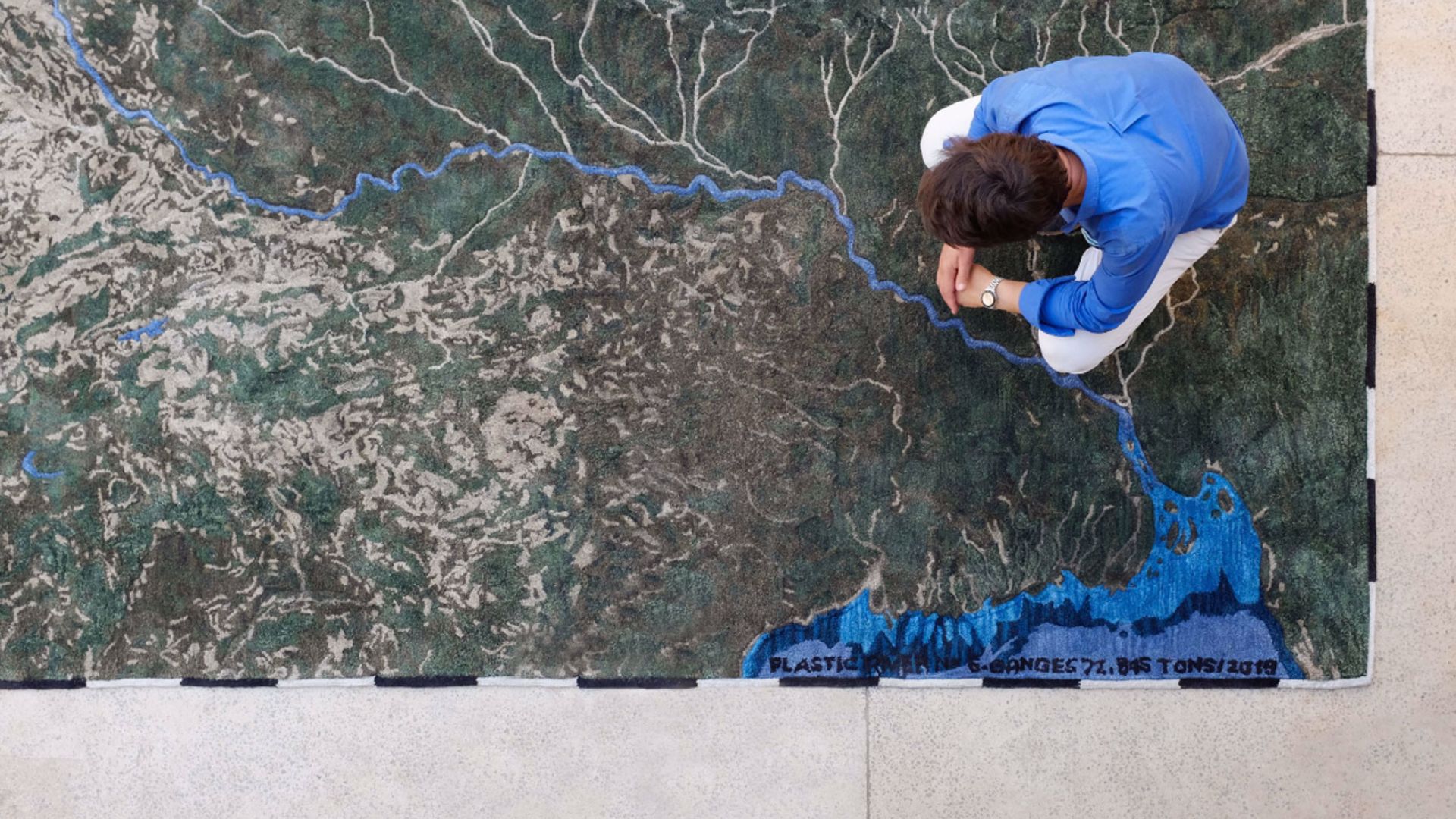
Let us showcase to you some of the coolest products inspired by pollution. As pollution continues to pose a threat to our planet, it’s important for design to become more sustainable too.
While reducing the scale of the problem is not possible overnight, every action – regardless of how little or big – counts. After all – it has the power to drive positive social and economic change. So, let’s embrace a future where design is not only aesthetically pleasing but also mindful of its impact on our world.
Gallery
Open full width
Open full width
Products inspired by pollution – 10 insightful projects:
Smogware by Iris de Kievith and Annemarie Piscaer
If you’re curious to get better and learn more about the quality of the air you breathe, the creation by designers Iris De Kievith and Annemarie Piscaer should be on your shopping list. They have created Smogware – a ceramics collection that features products with a unique decorative glaze.
The twist here is the fact the glaze is created using common air pollution particles. Now, don’t worry – the tableware is completely safe to use. In fact, it’s been tested. However, the creation of the Dutch duo is a great way to make the ‘invisible’ problem more visible.
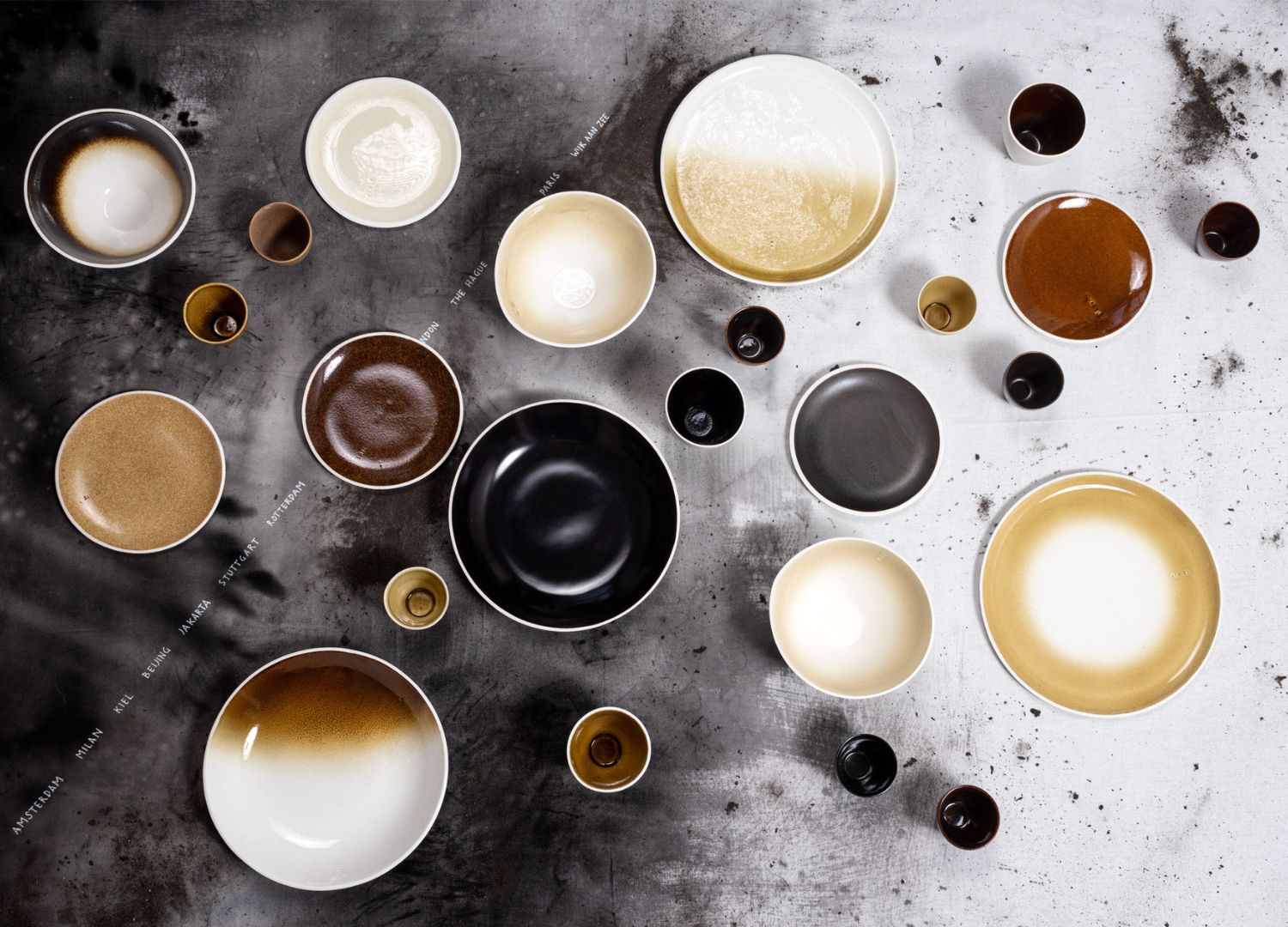
Common Neglect Material by Takuto Ohta
What happens when a populated place gets abandoned? Where do all the things go? As it turns out – nowhere. They stay in the same spot. That’s what Takuto Ohta’s extraordinary project is all about.
Often, things exist in a space for more than a dozen years without interacting with people, even if they provide value. Common Neglect Material is a project that consciously utilizes the ‘unnecessary’ things and places them exactly where they were found. The recycled furniture collection is surprisingly stylish and sheds light on the important topic of waste.
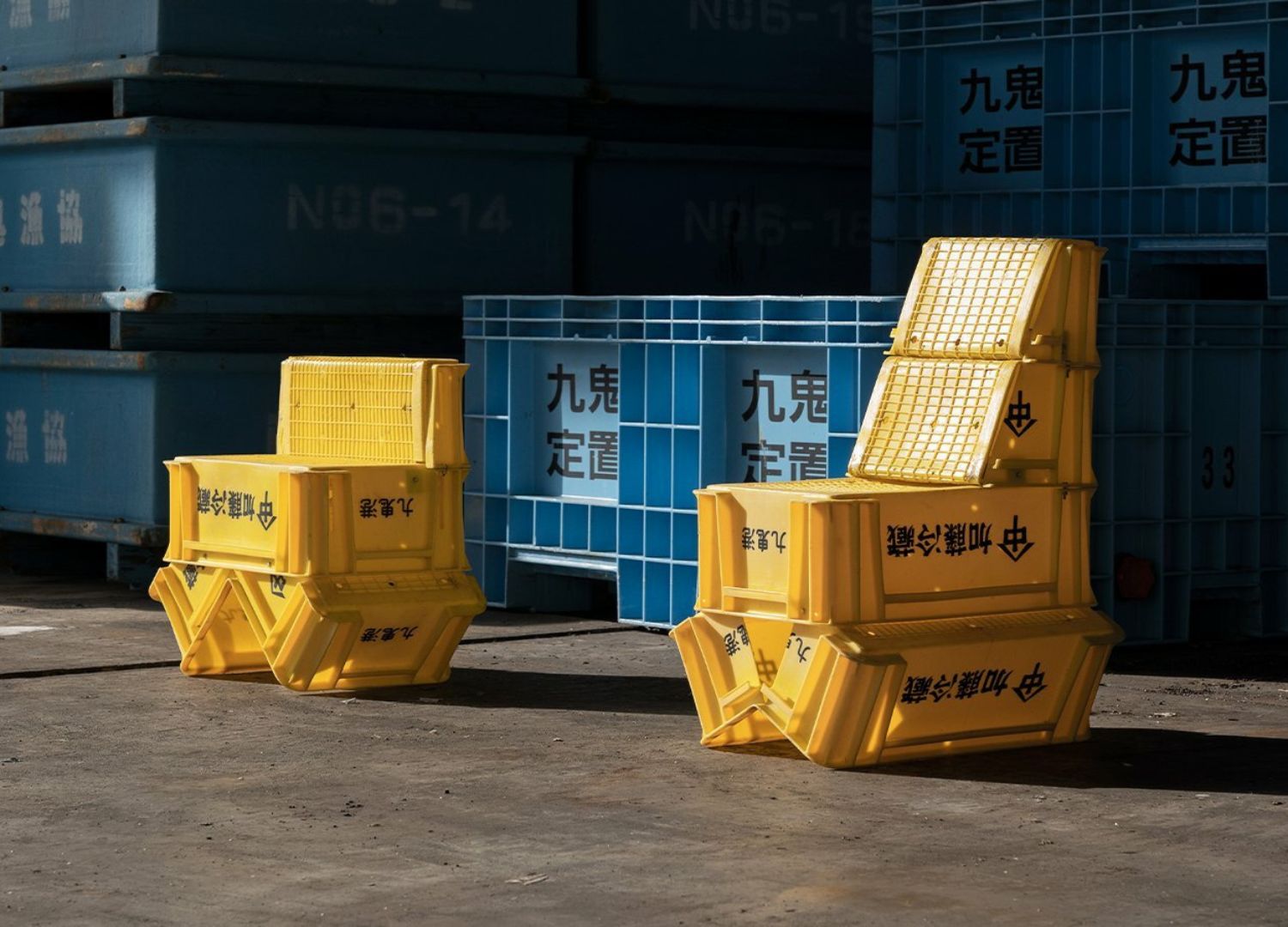
Plastic Rivers by ACdO and GAN
Plastic Rivers is a collection of four rugs that recreate aerial Google Earth panoramas of rivers considered the most polluted in the world – Ganges, Yangtze, Indus, and Niger. The project was a shared idea of Álvaro Catalán de Ocón and GAN.
Through the collection, the creatives wished to raise awareness of one of the biggest problems in the modern age – plastic waste. Impressively, all of the rugs are hand-tufted using recycled plastic fibers.
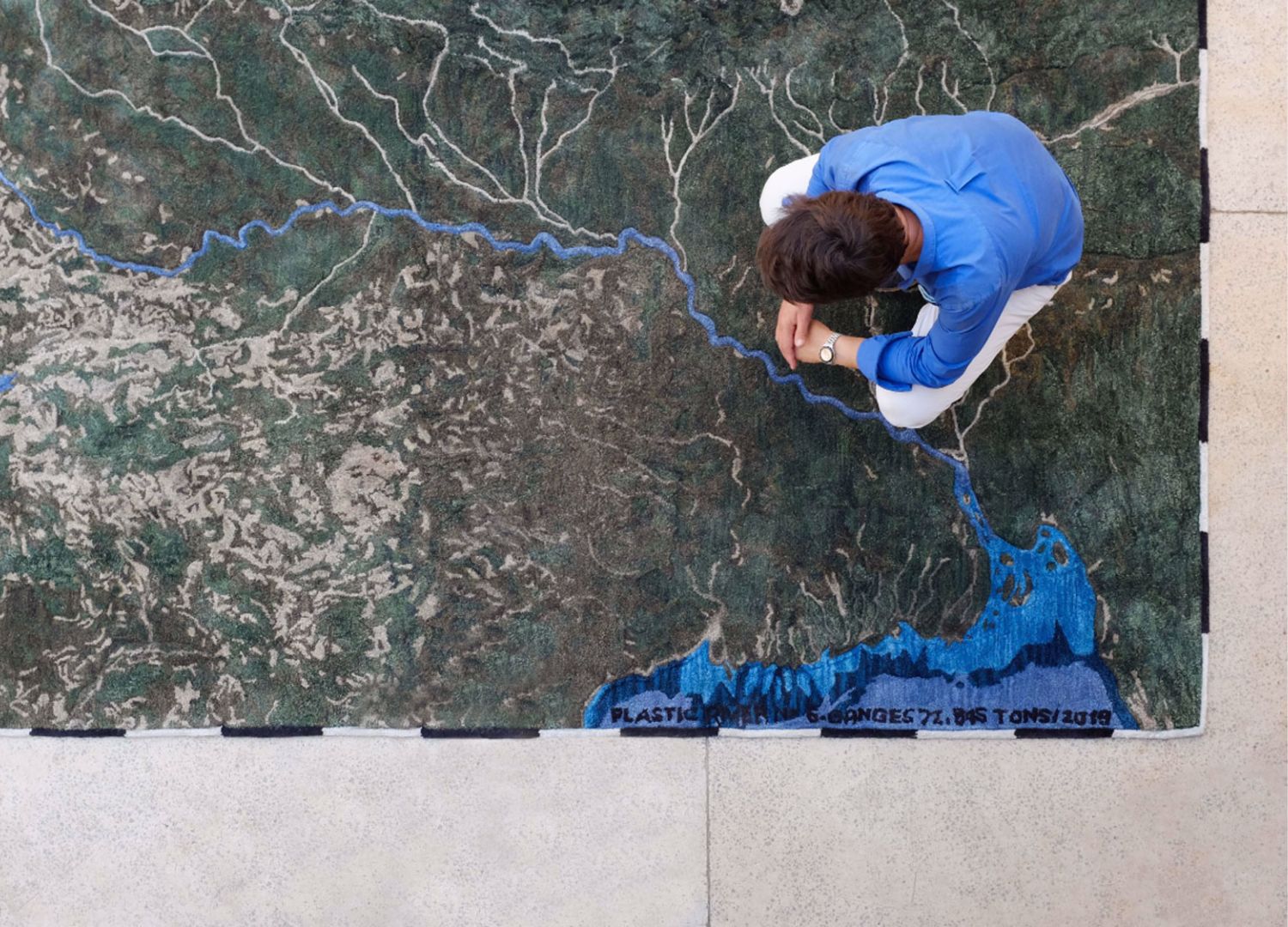
Common Sands – Forite by Snøhetta and Studio Plastique
Next on our list is the collaborative research project between Snøhetta and Studio Plastique. Working together, the creative masterminds came up with several prototypes and variations for recycling E-waste glass components. The result you see is tiles made of the previously-mentioned glass components, and microwave opens. A surprising combination, isn’t it?
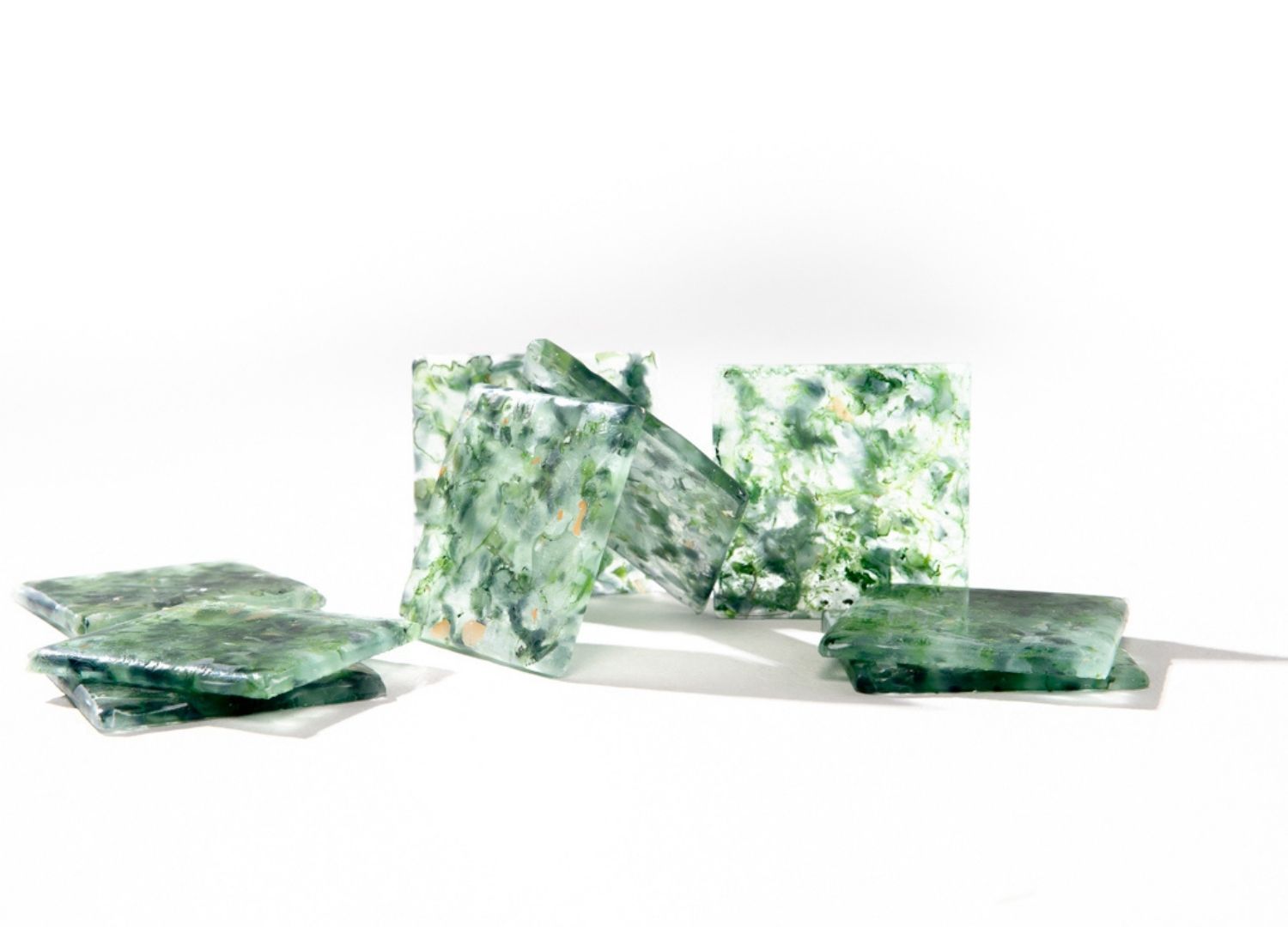
From the Himalayas by Sagarmatha Next and Super Local
Sagarmatha National Park, home of Mount Everest, attracts thousands of visitors every year. The beauty it offers is unlike any other place in the world. Unfortunately, the swarms of visitors have brought tragic amounts of waste and pressure on the region’s ecosystem.
From the Himalayas is a product collection that provides innovative and sustainable solutions for removing and transforming the waste that’s filled the region. Within the collection, you’ll find three different pebble-shaped plastic stones and the Himalayas’ most iconic peaks, which are made from thousands of recycled bottle caps.
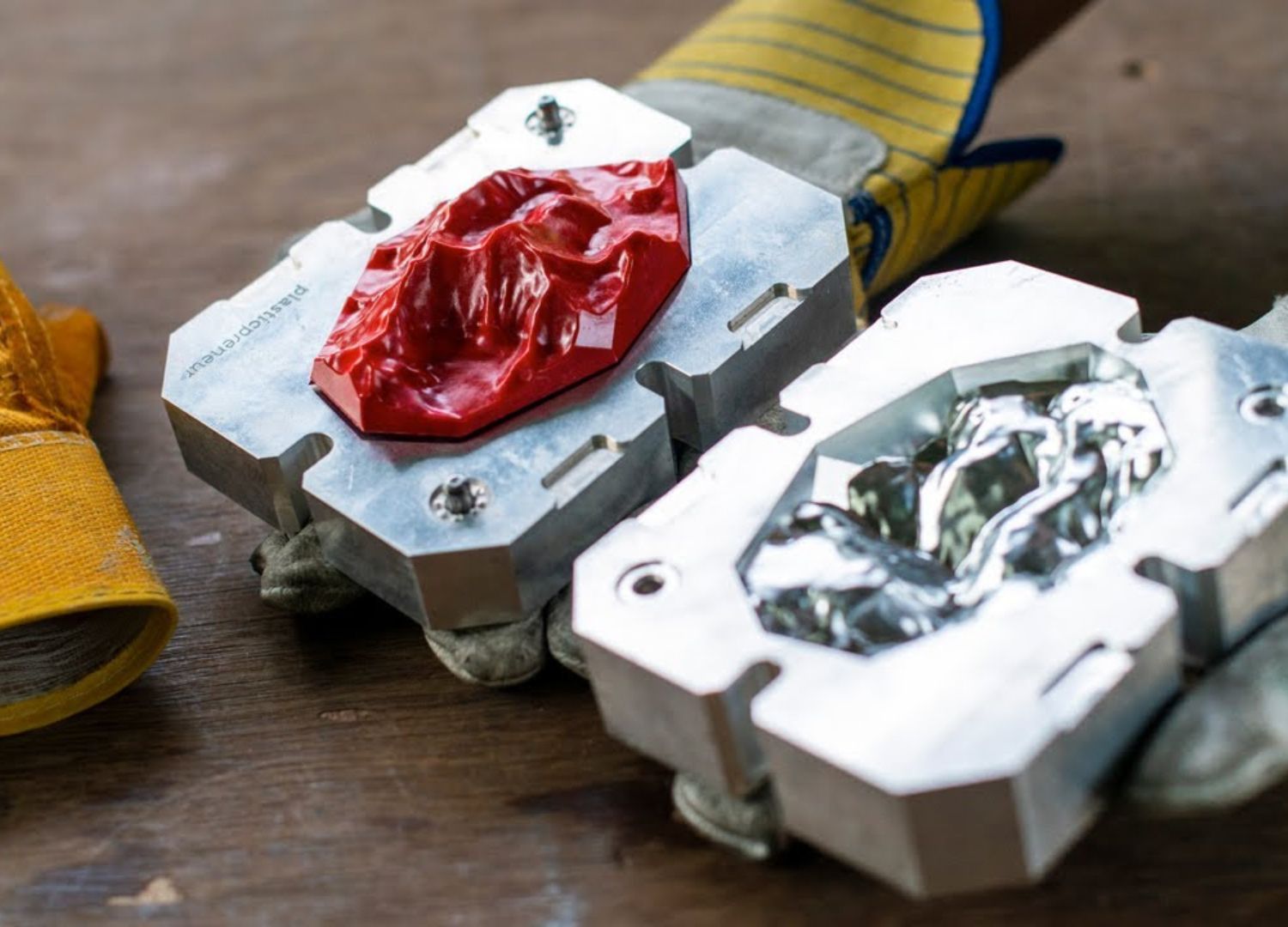
Trash-Board by The Trash Traveler and Steve Surfboards
Our oceans are extremely polluted, and we must take action now. To shed light on the important matter, Portugal-based Andreas Noe of The Trash Traveler and Štěpán Řezníček of Steve Surfboards have come together to craft a Trash-Board.
Their project is made completely out of waste. To fabricate the surfboard blank, they used an old fridge, which was discarded close to the sea. The deck and bottom are decorated with waste the duo has collected from the ocean and beach. Face masks, bottle caps, bits of clothing, microplastics, and more can be seen in the symbolic piece of art.

PESO by Michela Panizza
Each of our actions has weight. That’s the message Italian-based designer Michela Panizza wants to share through her project PESO. She’s created a gym weight that’s made of disposable face masks. As the designer writes herself, PESO wishes to be a message before an object. Michela believes that the world is in our hands, therefore, we should take care of it.
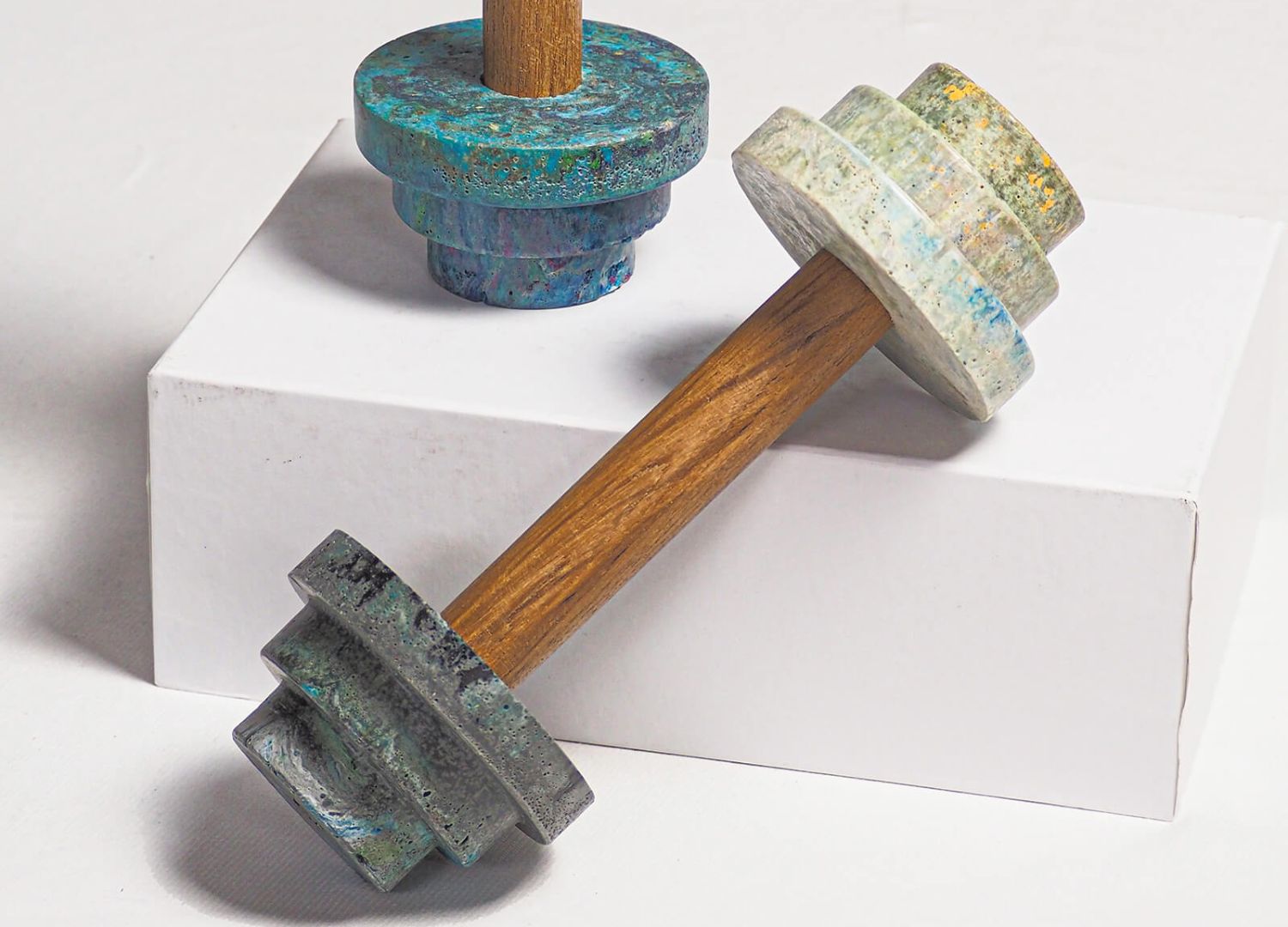
Wave Cycle by Harry Peck
Did you know that every year 16 000 polystyrene bodyboards are left on UK beaches? To highlight the problem, British designer Harry Peck has created a collection of stools, a chair, and a shelving unit, which are made from recycled surf and bodyboards. In the process, the designer conducted over 100 tests on polyurethane and polystyrene, which gave him an understanding of the strength of the materials.
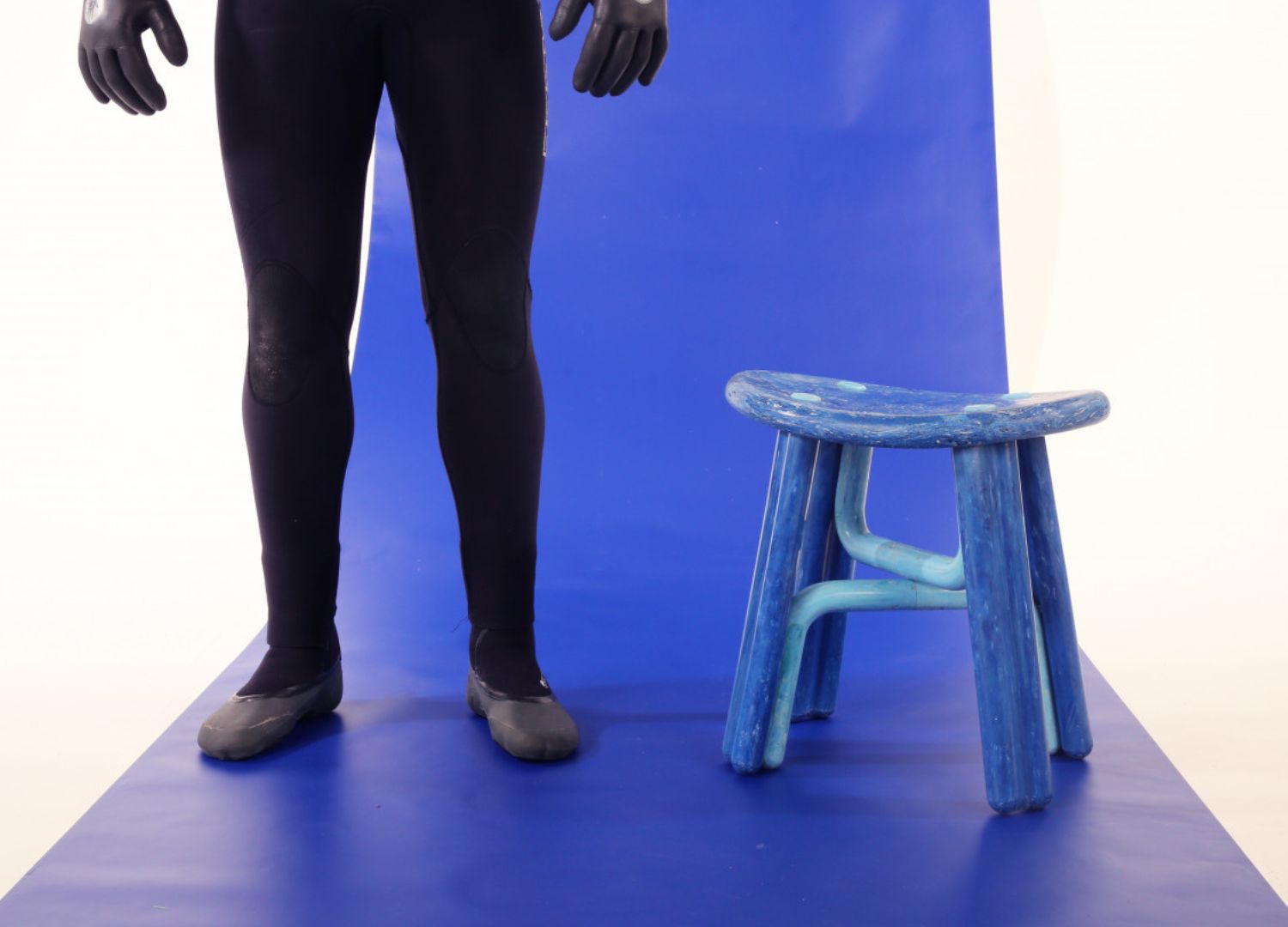
The Elements by The New Raw
Another impressive project that educates on marine plastic is The Elements. The collection of Dutch design studio The New Raw features beach furniture, including a changing room, a sunbed, and a modular walkway.
Inspired by nature elements (mainly those by the sea), the furniture is available in two color tones – aqua and sand. In the making of the project, the design studio collected 720 kilograms of marine plastic waste, melted it down, and then used it as a 3D printing filament.
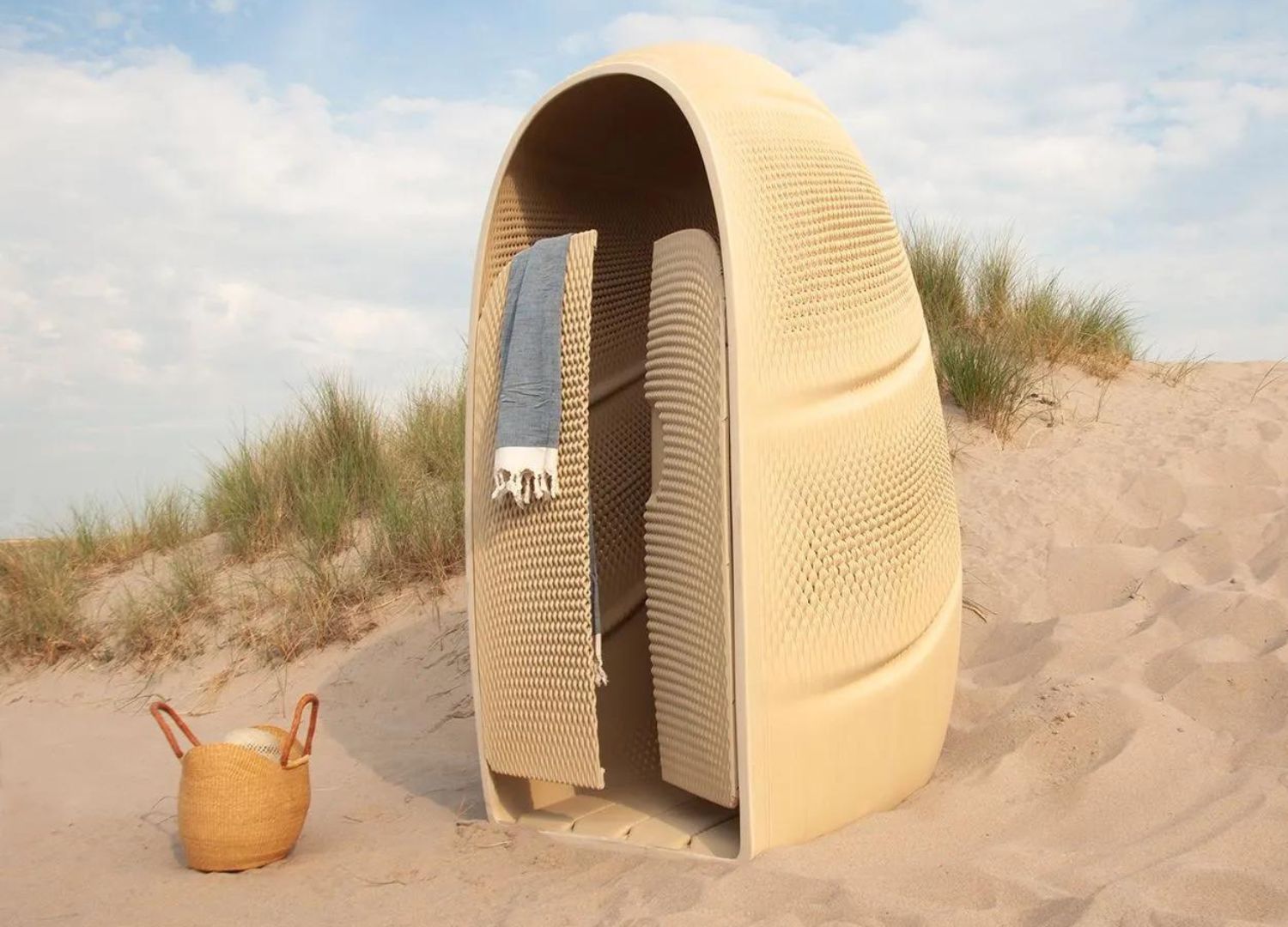
The Stack and Stack stool by Haneul Kim
COVID-19 changed our lives in more ways than one. In the heat of the pandemic, the demand for single-use products, especially face masks, grew significantly. According to estimates, 129 billion of them were disposed of every month.
As a solution, South Korean designer Haneul Kim offers The Stack and Stack – a collection of stools made from 1,500 face masks. To develop the project, Kim collected them from the Kaywon University campus. The face masks were then placed on top of each other, melted together, and molded into shape.
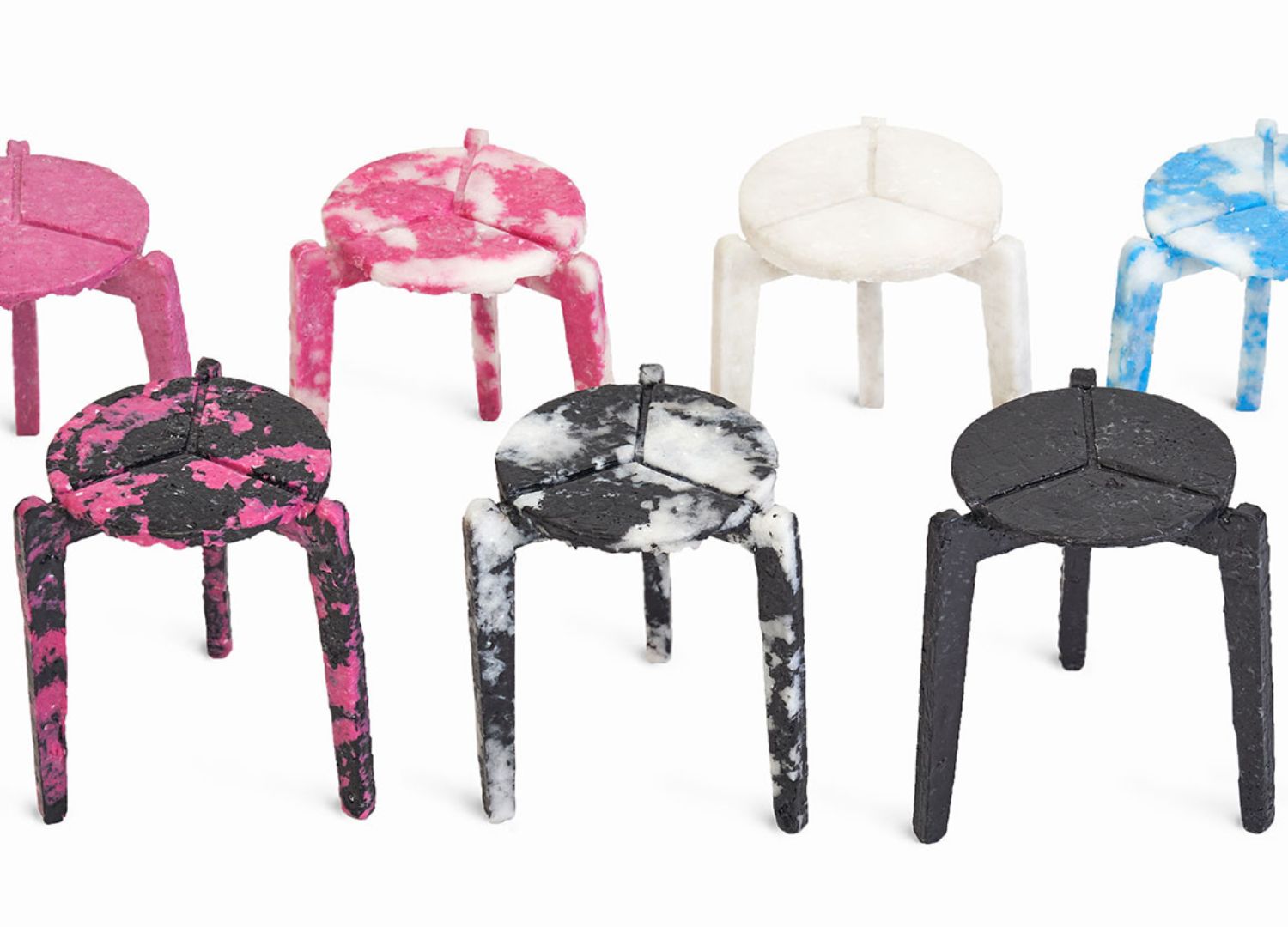
End notes
As pollution continues to be an issue of concern, design must find ways to be more sustainable or, at the very least, educate the public on the important matters. As we can see from the projects above, environmental problems can also be discussed in a playful, exciting way, and waste can become a valuable material as designers strive for more circularity.













